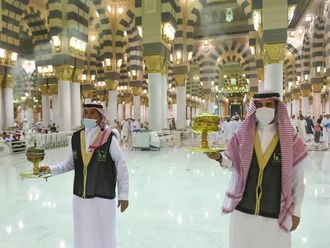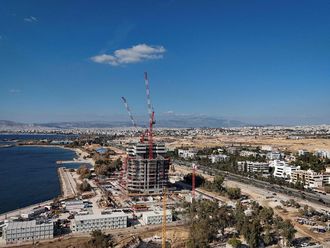Washington: Faced with mounting violence, Pakistan needs to push ahead reforms of its police force, which lacks the training, equipment and political will to be effective, a new study said.
In a lengthy report, a commission set up by the New York-based Asia Society called for Pakistan to step up police training and carry out structural reforms to boost the force’s skills and reduce corruption.
“High crime rates throughout the country, relatively low conviction rates of prisoners on trial and heightened concerns about instability spilling over from Afghanistan indicate that there is an urgent and critical need to invest in and reform Pakistan’s law enforcement infrastructure,” the report said.
The study, due to be released on Monday, said that criminals and Islamic extremists have increasingly colluded and evaded a police force hampered by “severe deficiencies” in technology and training.
Pakistan’s military and Inter-Services Intelligence agency have historically been major centres of power. But the report said the police hold primary responsibility for law and order.
“Shifting all the blame onto the police force — whether done by the public, media or government — is unfair and unproductive,” the report said.
Pakistan’s police system “simply is not structured to reward good behaviour, as merit-based opportunities for professional advancement are scarce, low pay is the norm and a lack of support and resources compels even many well-intentioned officers to misuse their authority in order to survive,” the report said.
Hassan Abbas, the commission’s project director and a professor at the National Defence University in Washington, said international assistance could help. Britain and the United States have both been assisting police reform.
“However, the overall funding for these projects is no match for the resources provided to Pakistan for anti-terrorism operations throughout the last decade, very little [if any] of which ever reached police institutions because it was so largely geared toward the defence sector,” he said.
“Both are important needs, but a balanced approach is needed to help Pakistan tackle internal and external challenges more effectively.”
Pakistan has received more than $18 billion (Dh66.09 billion) in US aid, mostly for its military, since it agreed to support the US-led war in Afghanistan after the September 11, 2001 attacks.
The country in recent years has been torn by violence, with extremists carrying out attacks in major cities, militant cells holed up in lawless border areas and an ethnic insurgency raging in Balochistan.
Pakistan’s then military ruler Pervez Musharraf in 2002 issued orders to set clear rules for the police, but the reform quickly lost steam.
The Asia Society study called for the implementation of the 2002 reforms, along with an overhaul of hiring practices, improvements in working conditions and the establishment of an independent authority to assess complaints of police misconduct.
The commission recommended the training of anti-terrorism investigators at each police station, along with special units with direct access to data from private cellular telephone operators.
The report also called for training on protecting the rights of women, children and minorities — a frequent source of concern — and efforts to recruit more women police officers.
Separately, the study called for special efforts to recruit local youth as police in Balochistan, the southwestern province where insurgents rose up in 2004 to demand greater autonomy.
The report said that police should be put in charge of investigating charges of extrajudicial killings in Balochistan and that Pakistan should restrict the roles there of the paramilitary Frontier Corps and intelligence agencies.












